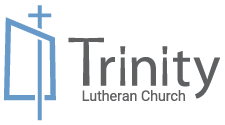Singing the Lord’s Song in a Strange Land
Beloved community,
 At the end of May, New Testament theologian N. T. Wright published God and the Pandemic: A Christian Reflection on the Coronavirus and Its Aftermath. An important voice in this unprecedented time, Wright had written earlier this spring about the power of lament as a prayerful, faith-filled response to the COVID-19 pandemic. Recently he has weighed in on the ongoing closure of church buildings, and the enforced “exile” from ‘in person’ gathering in our places of worship. On May 21 he recorded some of his thoughts on our time of 21st century “exile,” remembering the Babylonian exile of the people of Israel some 2600 years ago, in an essay posted by Time magazine. His association of this time of church closure to the experience of “exile” as it has been known to people of faith throughout the millennia is an evocative image.
At the end of May, New Testament theologian N. T. Wright published God and the Pandemic: A Christian Reflection on the Coronavirus and Its Aftermath. An important voice in this unprecedented time, Wright had written earlier this spring about the power of lament as a prayerful, faith-filled response to the COVID-19 pandemic. Recently he has weighed in on the ongoing closure of church buildings, and the enforced “exile” from ‘in person’ gathering in our places of worship. On May 21 he recorded some of his thoughts on our time of 21st century “exile,” remembering the Babylonian exile of the people of Israel some 2600 years ago, in an essay posted by Time magazine. His association of this time of church closure to the experience of “exile” as it has been known to people of faith throughout the millennia is an evocative image.
Wright also reminded the faith community that with the closure of church buildings, the mission of the church is not closed:
Christians should therefore celebrate every way in which the living Lord whom they worship in church buildings is out and about, bringing healing and hope far beyond the visible limits of church property. Jesus does not need church buildings for his work to go forward. Part of the answer to the question, “Where is God in the pandemic?” must be, “Out there on the front line, suffering and dying to bring healing and hope.”
But our churches have been for centuries physical and often audible reminders, on main streets and in town squares, on city blocks and in suburban developments, of the vital dimension to life that Western modernity has tried to crowd out. We will no doubt learn many things in this time of enforced “exile” – which is what it is. But we should be praying towards the day when our buildings will function within our society as they were designed to do.
In 588 BCE, the ancient city of Jerusalem, the capital of Judah and the worship center for the people of Israel, fell as the Babylonians laid siege to the city. The temple of Solomon was destroyed, and the people of Jerusalem were deported and forced into exile in Babylon. As cited in 2 Kings of Hebrew scripture, for nearly 50 years the people of Israel wept by the waters of Babylon. “How can we sing the Lord’s song in a strange land,” the people cried out in Psalm 137. Torn from everything familiar – land, home, family circles, neighbors, the temple, Jerusalem itself, they felt alone and utterly forsaken by God.
The despair of the Israelites was so great that many left the worship of Yahweh for the gods of the Babylonians. Those who refused to forsake their faith pleaded with the God of steadfast love and mercy to remember them. “Behold and see our degradation!” they cried in Lamentations 5:1.
Wright reflected on the Babylonian exile of the people of Israel in his essay last month with Time magazine, drawing parallels to our current “exile” as faith communities:
We find ourselves “by the waters of Babylon,” thoroughly confused and grieving for the loss of our normal life. “How can we sing the Lord’s song in a strange land?,” as in Psalm 137, translates quite easily into “How can I know the joy of the Eucharist sitting in front of a computer?” Or “How can I celebrate Ascension or Pentecost without being with my brothers and sisters?”
Of course, part of the point of Psalm 137 is precisely that this Psalm is itself a “song of the Lord.” That is the irony: writing a poem about being unable to write a poem. Part of the discipline of lament might then be to turn the lament itself into a song of sorrow. Perhaps that is part of the way in which we are being called right now to be people of lament – lamenting even the fact that we can’t lament in the way we would normally prefer. We need to explore those questions, and the new disciplines they may demand, in whatever ways we can. Perhaps this, too, is simply to be accepted as part of what life in Babylon is like. We must, as Jeremiah said, settle down into this regime and “seek the welfare of the city” where we are. But let’s not pretend it’s where we want to be. Let’s not forget Jerusalem. Let’s not decide to stay here.
My sisters and brothers in Christ, let’s not forget ‘Jerusalem,’ our place of worship and gathering on Fulton Street, but during this time of exile let’s settle down and “seek the welfare of the city.” The church is not closed while our ability to gather in the church building remains in exile. Even as we refrain from joining our voices in songs of praise and thanksgiving, our mission and ministry continue, and we need to care well for both our congregational community and the wider human community in this time of exile. We have work to do.
Singing the Lord’s song in this time is singing a song of lament, a song of sorrow. Yet we confess that the Lord is with us in our exile. We are not abandoned even as we mourn what we have lost. Still, let’s not “forget Jerusalem.” Let’s not decide to stay here . . .
Until that day when we can confidently return to worship and fellowship in our life together, it remains a privilege to serve as one of Trinity’s pastors, even “in exile.”
Grace and peace,
Pastor Bob Linstrom


